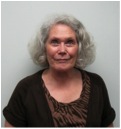This panel provided an overview of several key cases that helped reaffirm treaty rights in Wisconsin, Michigan, and Minnesota. Presentations highlighted how these cases were crafted and brought through the court system, why self-regulation was designed the way it was, and how GLIFWC emerged as a result. Panelists emphasized the significant role the Commission played in successful litigation and negotiations by providing solid biological data on species and enforcement capacity — proving the tribes’ ability to manage and self-regulate.
(Note: Each speaker section includes: photo, biography, speech excerpt, downloadable pdf of full speech, and each Youtube video link.)
![]() Conference Paper (note: written by GLIFWC DIA office)
Conference Paper (note: written by GLIFWC DIA office)
Moderators:
|
Howard J. Bichler, is the General Counsel for Stockbridge-Munsee Mohican Community. Before that, he was the General Counsel for the St. Croix Chippewa Indians of Wisconsin. In addition, he was a staff attorney with Wisconsin Judicare and an attorney/planner with the Southeastern Wisconsin Regional Planning Commission. He received a BA from the University of Wisconsin-Madison and a JD from Marquette University Law School. Howard was involved in the Voigt litigation representing the St. Croix Chippewa Indians of Wisconsin for 13 years with several years as lead attorney. In addition he represented the St. Croix Indians of Wisconsin in several post-Voigt judgment matters. Howard was also lead attorney for the Wisconsin Tribes in the Mille Lacs litigation for six years culminating in a favorable decision by the United States Supreme Court.
|
|
|
||
|
Kathryn L. Tierney is Tribal Attorney for the Bay Mills Indian Community in Brimley, Michigan. She received her undergraduate degree (Phi Beta Kappa) from the College of St. Catherine, St. Paul, Minnesota, and her law degree cum laude from the University of Minnesota. She has served as counsel for more than 10 Indian Tribes in the Great Lakes area including the Lac du Flambeau Band and the Lac Courte Oreilles Band during the Voigt litigation. She served as lead counsel in that case from 1983 to 1990. Kathryn directed the Wisconsin Judicare - Indian Law unit in the early 1980s and is a former co-chair of the American Indian Law Standing Committee of the State Bar of Michigan. She is a member of the bars of Wisconsin, Minnesota, and Michigan.
|
|
|
||
Panelists:
|
Bruce Greene’s law firm is based in Boulder, Colorado specializing in all aspects of federal Indian law and the representation of Native American Indian tribes. Bruce has devoted his professional career to this specialized area of the law, beginning in 1971, when he was one of the founding attorneys of the Native American Rights Fund. He has substantial expertise in federal Indian law with, federal court litigation experience in natural resources protection, assertion and protection of treaty rights, Indian gaming, and tribal economic development.
|
|
|
||
|
Michael Lutz is a 1976 graduate of the University of Wisconsin Law School and has been the law enforcement and treaty rights attorney for the Wisconsin Department of Natural Resources since 1980. He is currently the acting chief counsel for the Department. He has been involved in the Voigt case from the issuance of the Court of Appeals decision in January of 1983, and is currently retired. His duties in that regard have included legal counsel to the state’s negotiation team on interim implementation of the treaty right, drafter of the state’s litigation position, member of the state’s team on settlement and the DNR attorney dealing with implementation of the treaty right. Michael has played an active role in negotiating the stipulation that was the first modification of the Voigt final judgment and the enactment of 2007 Wisconsin Act 27 dealing with GLIFWC law enforcement authority.
|
|
|
||
|
Marc Slonim is a partner in the Seattle, Washington, law firm of Ziontz, Chestnut, Varnell, Berley & Slonim, a firm representing Indian tribes for over 40 years. Marc joined the firm as an associate in 1981 and, within a few years, began working on the Mille Lacs Band’s treaty hunting, fishing and gathering rights. He was the lead attorney in the Band’s 1837 Treaty rights case against the State of Minnesota and argued the case in the United States Supreme Court in 1998. In the mid-1990s he began representing the Little River Band of Ottawa Indians, and later represented the Band in the re-negotiation of the Great Lakes Consent Decree and in the inland phase of United States v. Michigan. Marc has also been involved in treaty fishing rights issues in the Pacific Northwest on behalf of the Makah Indian Tribe.
|
|
|
||








